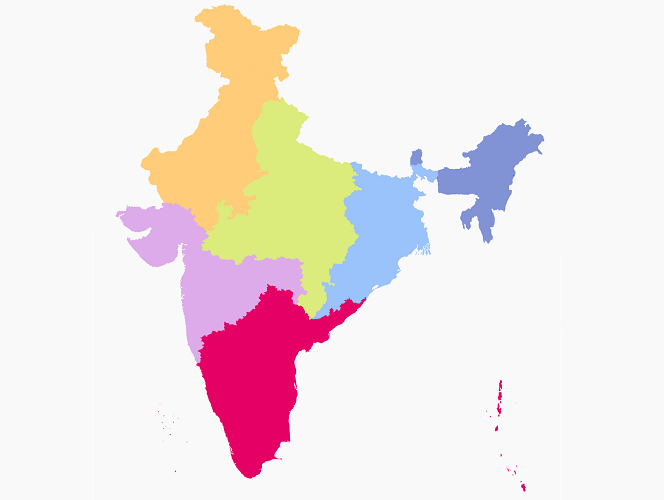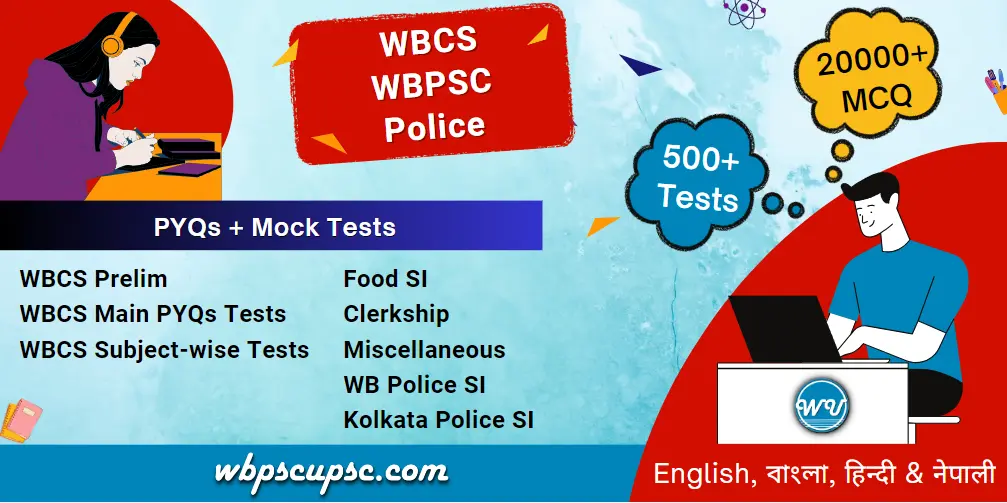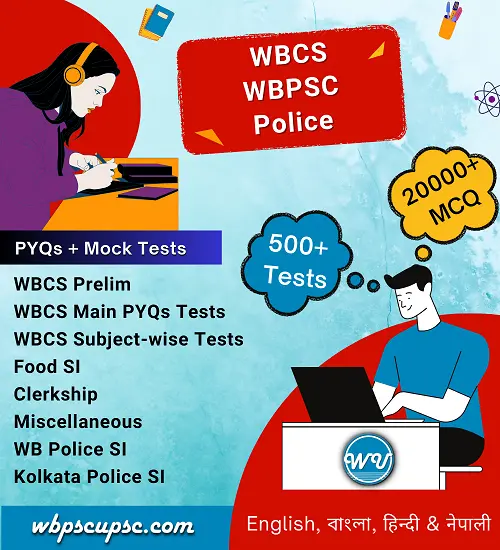March 3, 2020
Inter State Councils – Zonal Councils – Water Disputes
Contents
- The successful functioning of the Indian federal system depends not only on relations Centre and states but also between the states.
- Constitution makes following provisions for inter-state comity:
- Adjudication of inter-state water disputes
- Coordination through inter–state councils
- Mutual recognition of public acts, records and judicial proceedings
- Freedom of inter–state trade, commerce and intercourse
- In addition, the zonal councils have been established by the Parliament to promote inter-state cooperation and coordination.

Inter-State Water Disputes
- Article 262 of the Constitution provides for the adjudication of inter-state water disputes.
- It makes two provisions:
- Parliament may by law provide for the adjudication of any dispute of using, distribution and control of waters of any inter-state river.
- Parliament may also provide that neither the Supreme Court nor any other court is to exercise jurisdiction in respect of any such dispute or complaint.
- Under this provision, the Parliament has enacted two laws
- River Boards Act (1956)
- Inter-State Water Disputes Act (1956)
- The River Boards Act provides for the establishment of river boards for the regulation and development of inter-state river and river valleys.
- A river board is established by the Central government on the request of the state governments concerned to advise them.
- The Inter-State Water Disputes Act empowers the Central government to set up an ad hoc tribunal for the adjudication of an inter-state river water dispute.
- It will have a chairperson and two other members nominated by the Chief Justice of India from among the judges of the apex court or high courts.
- The decision of the tribunal would be final and binding on the parties to the dispute.
- Neither the Supreme Court nor any other court is to have jurisdiction in respect of any water dispute which may be referred to such a tribunal under this Act.
Water Disputes Tribunal
| Name of Tribunal | Year | States Involved |
|---|---|---|
| Krishna Water | 1969 | Maharashtra Karnataka Andhra Pradesh |
| Godavari Water | 1969 | Maharashtra Karnataka Andhra Pradesh |
| Narmada Water | 1969 | Rajasthan Gujarat Madhya Pradesh Maharashtra |
| Ravi and Beas Water | 1986 | Punjab Haryana Rajasthan |
| Cauvery Water | 1990 | Karnataka Kerala Tamil Nadu Puducherry |
| 2nd Krishna Water | 2004 | Maharashtra Karnataka Andhra Pradesh |
| Vansadhara Water | 2010 | Odisha Andhra Pradesh |
| Mahadayi Water | 2010 | Goa Karnataka Maharashtra |
Inter State Council
- Article 263 behold the establishment of an Inter State Council.
- It will affect coordination between the states and between Centre and states.
- President can establish such a council if at any time for public interest.
- He can define the duties, organization and procedure of the council.
- The council’s function to inquire and advice upon inter-state disputes
- It is complementary to the Supreme Court’s jurisdiction under Article 131.
- The Council can deal with any controversy whether legal or non-legal.
- Its function is advisory and not binding.
- Under Article 263, President has established the following councils
- Central Council of Health.
- Central Council of Local Government and Urban Development
- 4 Regional Councils for Sales Tax for the Northern, Eastern, Western and Southern Zones.
- The Central Council of Indian Medicine and the Central Council of Homoeopathy were set up under the Acts of Parliament.
Establishment of Inter-State Council
- The Sarkaria Commission on Centre-State Relations (1983–87) recommended a permanent Inter-State Council under Article 263.
- Need differentiate the Inter-State Council from other bodies established under the same Article 263.
- It must be called as the Inter-Governmental Council.
- In pursuance of the recommendations of the Sarkaria Commission, the Janata Dal Government headed by V. P. Singh established the Inter–State Council in 1990.
- It consists of the following members:
- Prime minister as the Chairman
-
- Chief ministers of all the states
- Chief ministers of union territories having legislative assemblies
- Administrators of union territories not having legislative assemblies
- Governors of States under President’s rule
- Home minister and other 5 Central cabinet ministers, nominated by Prime Minister
- 5 Ministers of Cabinet rank / Minister of State (independent charge) nominated by the Chairman of the Council are permanent invitees to the Council.
- The council is a recommendatory body on issues relating to inter-state, Centre–state and Centre–UT relations.
- It aims at promoting coordination between them.
- Its duties, in detail, are as follows:
- Investigating and discussing subjects in which the states or the center have a common interest.
- Making recommendations upon any subject for the better coordination of policy and action.
- Deliberating upon other matters of general interest to the states, referred by the chairman.
- The Council may meet at least thrice in a year.
- Its meetings are held in camera and all questions are decided by consensus.
- There is also a Standing Committee of the Council.
- It was set up in 1996 for continuous consultation and processing of matters for the consideration of the Council.
- It consists of the following members:
- Union Home Minister as the Chairman
-
- 5 Union Cabinet Ministers
- 9 Chief Ministers
- The Council is assisted by the Inter-State Council Secretariat.
- This secretariat was set-up in 1991 and is headed by a secretary to the Government of India.
- Since 2011, it is also functioning as the secretariat of the Zonal Councils.
Public Acts, Records & Judicial Proceedings
- Under the Constitution, the jurisdiction of each state is confined to its own territory.
- It is possible that the acts and records of one state may not be recognized in another state.
- To remove any such difficulty, the Constitution contains the “Full Faith and Credit”.
- Full faith and credit is to be given throughout the territory of India to public acts, records and judicial proceedings of the Centre and every state.
- The expression ‘public acts’ includes both legislative and executive acts of the government.
- The expression ‘public record’ includes any official book, register or record made by a public servant in the discharge of his official duties.
- Final judgments and orders of civil courts in any part of India are capable of execution anywhere within India.
- It doesn’t need a fresh suit upon the judgment.
- The rule applies only to civil judgments and not to criminal judgments.
- In other words, it does not require the courts of a state to enforce the penal laws of another state.
Inter-State Trade & Commerce
- Articles 301 to 307 in Part XIII of the Constitution deal with the trade, commerce and intercourse within the territory of India.
- Article 301 declares that trade, commerce and intercourse throughout the territory of India shall be free.
- The freedom guaranteed by Article 301 is freedom from all restrictions.
- Except those which are provided in the other provisions (Articles 302 to 305) of Part XIII of the Constitution.
- Parliament can impose restrictions on the freedom in public interest.
- But, the Parliament cannot discriminate between the states except in the case of scarcity of goods in any part of India.
- The legislature of a state can impose reasonable restrictions on the freedom with that state or within state in public interest.
- But, a bill for this purpose can be introduced only with the previous sanction of the president.
- State legislature cannot discriminate between the states.
- The legislature of a state can impose on goods imported from other states or the UTs any tax to which similar goods manufactured in that state.
- This provision prohibits the imposition of discriminatory taxes by the state.
- The freedom (Article 301) is subject to the nationalization laws.
- Thus, the Parliament or the state legislature can make laws for the carrying on by the respective government of any trade, business, industry or service, whether to the exclusion, complete or partial, of citizens or otherwise.
Zonal Councils
- The Zonal Councils are the statutory bodies.
- Established by States Reorganisation Act of 1956.
- The act divided the country into five zones
- Northern
- Central
- Eastern
- Western
- Southern
- It’s provided a zonal council for each zone.
- Zonal Council members
- Home minister of Central govt.
- Chief ministers of all the States in the zone
- 2 other ministers from each state in the zone
- Administrator of each UT in the zone
- Zonal Council advisors
- A person nominated by the Planning Commission
- Chief secretary of the govt. of each state
- Development commissioner of each state
- The home minister of Central govt. is the common chairman of the 5 zonal councils.
- Each chief minister acts as a vice–chairman of the council by rotation
- They hold office for a period of 1 year at a time.
North-Eastern Council
- In addition to the above Zonal Councils, a North-Eastern Council was created.
- North–Eastern Council Act of 1971.
- Its members include Assam, Manipur, Mizoram, Arunchal Pradesh, Nagaland, Meghalaya, Tripura and Sikkim.
- In 2002, Sikkim was added as the 8th member of the North-Eastern Council.
- North-Eastern Council members
- Ex-officio Chairman – Union Home Minister (earlier it was Ministry of DoNER)
- Vice Chairman – Minister of State (Independent Charge), Ministry of DoNER.
- Governors and Chief Ministers of all the 8 States
- 3 members nominated by President.
- It is function as a Regional Planning Body for the North Eastern Region.
- It has to review the measures taken by the member states for the maintenance of security and public order in the region.


